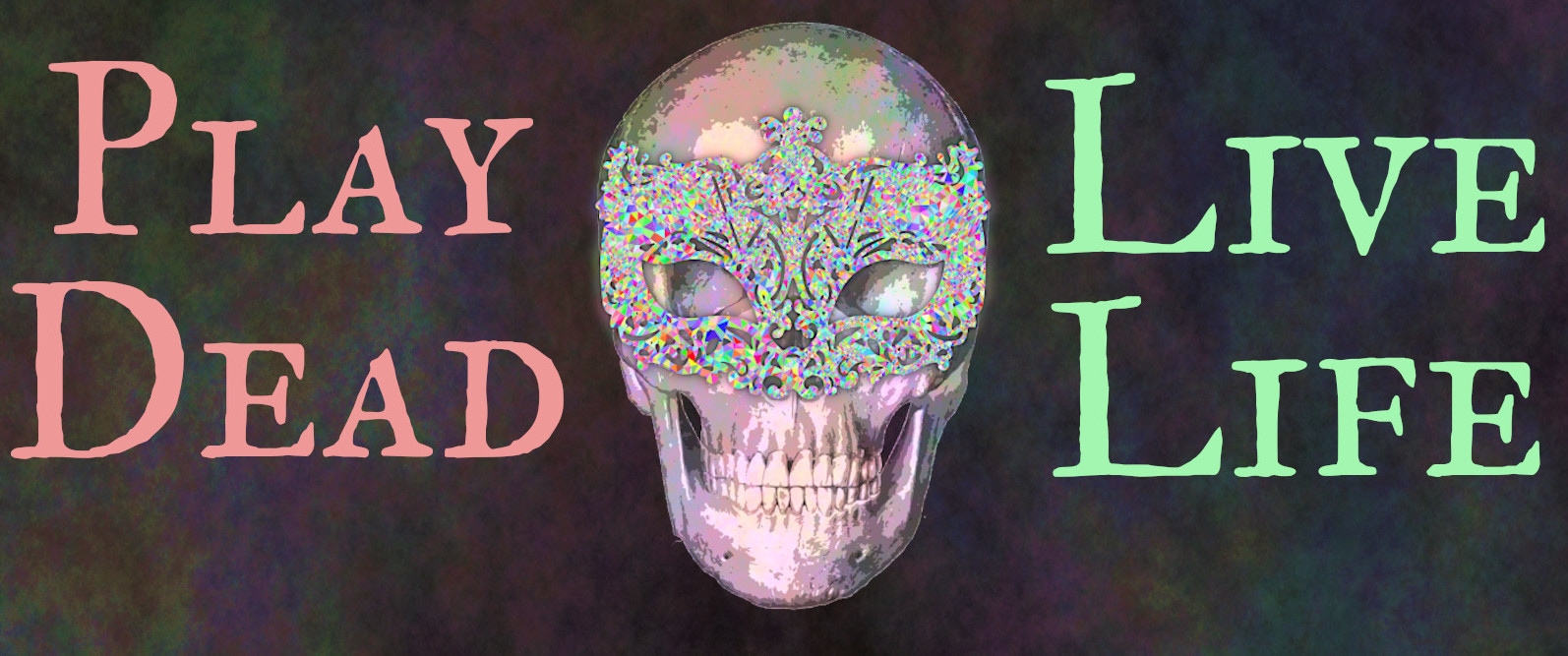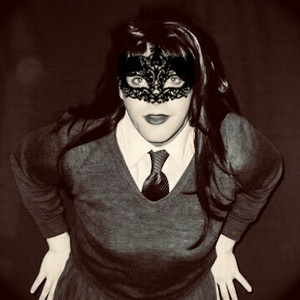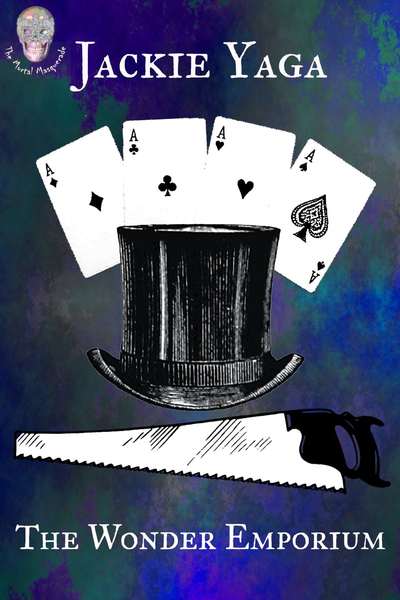“I’m sorry for the deception,” Triana told Ted, “but it was the only way to get close enough to help you. I know you suspected Mum and Dad, but they aren’t custodians, I’m the only one with any powers or calling. I’ve been watching your auras, waiting for the right moment.”
“Well, you had me fooled,” said Ted. “You and your little girl hippy-hop bunnies routine. I did wonder why you were literally the only kid I’ve seen in all my time in the afterlife.”
“Full disclosure,” said Triana, “I’m a deliverer, what you think of as death, but I’m not here to move you on the way you think. The other custodians have been watching you for some time, they all knew you weren’t a regular spirit passing through, that you were building something important but weren’t ready to accept the role the universe had for you. Apparently that’s where I came in.”
“I get it,” said Ted, “we’re a trinity in the making. But why would I want to start funnelling souls along when I’ve been fighting that whole idea since I got here?”
“We’ll get to that,” said Triana. “You didn’t have everything in place anyway until Darryl came along to be your maintainer. I knew as soon as I saw him that was why he was here. Right, Darryl?”
“Right,” I said. “I'm sorry for not telling you guys."
“So what are you, some kind of cosmic consultant?” asked Lillian.
“More a free agent,” Triana replied. She began to tell us her story, with Bob and Stephanie filling in the details along the way.
The story began with a young boy called David. David was not a happy child; he was intelligent, liked reading and drawing and had loving parents who did all they could for him, but when David looked at the world he just saw confusion and contradiction. There were rules, so many rules, so many people telling him he just had to listen carefully, do as he was told and everything would make sense. But the rules were lies, bland platitudes the people making them had no intention of living by. When he did as he was told to the best of his understanding they’d change the rules and get angry with him for not knowing. He did not fit in with his classmates, even though he tried to like what they liked and play the games he was supposed to. Instead of being accepted he was laughed at, attacked and treated like a problem by the same teachers who’d told him to come to them rather than fight back.
So he went back to drawing, filling his exercise books with illustrations of unlimited complexity. When he drew he saw patterns form, develop and expand beneath his pencil, the same few simple shapes and lines building into ordered chaos to create a universe, the repeating patterns expanding from atoms to planets, worlds, galaxies. His teachers told him off for doing this instead of engaging with lessons, but by this point he’d stopped caring. The school work they gave him wasn’t exactly hard anyway, he’d do enough to keep them quiet and then go back to drawing. Over time recurring images started to appear, with one character in particular featuring prominently; an image of a girl. His parents once asked him who she was.
“Her name is Triana,” he answered. “I think she’s me.”
David liked some lessons. He was a high achiever in Maths, even though the actual work was basic and repetitive he found comfort in finding logical patterns to make sense of outcomes. He also enjoyed ancient mythology and comparative religion, which gave him a window into how other people viewed the universe. There he also found patterns, realising that when people lied, cheated, hurt each other and generally ignored all the nice ideas of honesty and justice they claimed to subscribe to the system adjusted and righted itself. This explained a lot, but the realisation made him even more cynical and detached, the lack of natural justice angered him.
He lashed out increasingly, followed by bouts of self-loathing and fear about becoming something he hated, creating a vicious cycle. He asked awkward questions in class which, while well meant, were interpreted as aggressive and disruptive, alienating him even more. He was bullied by his peers, distrusted by his teachers and uncomfortable within his own skin. So again he went back to reading, drawing and, increasingly, writing; pages and pages of intricate illustrated diaries filled with poetic musings on religion, mathematics, nature and cosmology. Each entry was written in gentle cursive handwriting and signed at the bottom, “Triana”.
One day, home sick from school with his parents at work, he went to his Mother’s wardrobe and began trying on clothes. Of course they were all too big and he had no idea how to put on much of what he found, but he experimented with what he had. When his parents returned they found him calmly sat watching TV in purple leggings, a soft silvery grey dress and a baggy cardigan. He was relaxed and happy in a way they had never seen him.
“Triana?” said his Dad.
Triana smiled.
“Yes,” she said.
“When we saw her that day, it was like watching a butterfly emerge,” said Stephanie. “Of course we were surprised, but we’d always known about David’s diaries and pictures of Triana, I think we were waiting to meet her. We mentioned it to the child psychologists the school had assigned, who told us it was a coping mechanism we could accommodate for a while to see if it was a temporary phase or evidence of gender dysphoria. I was just happy to see David finally happy and confident, if that meant losing a son and gaining a daughter so be it,”
“From that point on,” added Bob, “we told David that Triana was welcome to come out whenever she wanted, which turned out to be every day. We went out and bought clothes for her to wear in her own size, we even bought uniform so Triana could go to school as a girl, but the school wouldn’t sanction it. We ended up taking her out for home schooling, she’d always mostly taught herself anyway and because she never made social connections she had nothing really to go back for.
“Steph and I arranged our work hours so one of us could be with Triana through the day. We taught her what we could, but mostly we just had to buy the books and let her loose. Eventually we got some support to bring in specialist subject tutors so she could start studying GCSEs at age 12. We looked at enrolling her into a secondary school, but it would have had to be one that could support her needs and let her attend as Triana. We’d made such progress, we couldn’t let them drag us back to square one.
“OK, so your kid was trans, and a little genius,” said Lillian. “How did you all end up here?”.
Triana explained, “I chose Astronomy as one of my GCSEs, so Mum and Dad took me on a trip to a proper observatory in Northumberland. I was captivated by the whole experience; I’d stargazed many times, one of my favourite things was to lie beneath the night sky watching the stars gradually reveal themselves, separate out from little blurs into little clusters and unfold infinity before your eyes. And when I saw it in a properly dark sky with a powerful telescope to hand, you can multiply the whole experience by a thousand. All those recurring patterns I’d drawn in my exercise books, the fractal spiral models, a cosmos bigger than anyone could ever comprehend but which even the smallest organism is a part of, it was all laid out before me. I’d studied a lot of religions out of interest without ever wanting to take one up, but that observatory was the closest I ever came to meeting God. I practically made a covenant there and then to serve and assist whatever force was behind it all, God or universe. Maybe that’s why what happened happened.”
Bob took over: “We were on the motorway heading home late that night. It had been a long day but Triana was ecstatic, the happiest we ever saw her, which made it the happiest day our family ever had. Maybe I was speeding a little, I don’t know, but we hit a patch of black ice. I didn’t lose control immediately, but the car behind didn’t react quickly enough, ploughed into us and sent us up and over the barrier into the other carriageway, where a lorry hit us head on at full speed. That’s my last memory before waking up here with Steph and Triana.”
“When did you hit total recall?” Ted wanted to know.
“Fairly quickly,” said Stephanie, “mainly because we had Triana with us, who was barely fazed by any of it.”
“It’s not that I didn’t care,” said Triana. “Dying like that is a tragic waste no matter what, there's a whole adult life I never got a chance to experience and I’m stuck forever in the body of a twelve year old transgirl. But I also felt strangely calm, like I’d been called to something I had to answer. My parents were there with me, as I looked at them I saw my first auras. I figured out more in the years since, to the point where I’ve a pretty good idea now what the universe is and what it is using me for, at least in a way that makes sense.”
“You mentioned auras before,” I said. “What do you see, exactly?”
“It’s like a cloud around everyone I meet here, a feeling of their soul and place in the cosmos. Not everyone can sense it, it’s mostly unique to spirits called as deliverers. What about you, Darryl? Do you see auras?”
I confirmed that I do not. I just see what needs doing in front of me and do it, same as I always did.
“So you’re Death disguised as a little girl,” said Lillian. “How many have you dispatched?”
“It’s not totally accurate to think of me as Death,” Triana replied. “Since arriving on this plane I’ve found myself guided to wandering souls who never settled with any of the trinities and were ready to pass on. I think it’s because I’ve never fit in anywhere myself that the universe picked me for the job. But no-one’s being hunted down and I can’t dispatch anyone who isn’t ready, even then they just go somewhere else. The rest of the time I get to interpret auras and peoplewatch, which is awesome. It’s a great perk that brings a lot of perspective. By the way, have you worked out why my name’s Triana?”
“Obviously something to do with the number three,” said Ted.
“Exactly,” said Triana. “When I was drawing all those little spirals and replicating patterns that built up into the bigger picture it always came back to the number 3. Trigonometry figures in all kinds of maths. The golden ratio has three intersecting values. And monotheistic and polytheistic religions alike divide their main godhead into three component parts, some variation of creator, maintainer and destroyer. Do you see where I’m going with all this?”
“The godhead trilogy replicated throughout the universe into smaller planes of the afterlife,” I said. Triana nodded.
“Three aspects of the same, intersecting and replicating inwards and outwards in infinite quantity, to account for every variation of life. But there’s another part of the formula as well. It’s the thing that drove David to distraction, but when I realised it as Triana I found it incredible and beautiful.”
Ted was rolling his eyes a little at all this metaphysical stuff. Triana gave him a sweet smile and carried on:.
“The spiral patterns that repeat through the universe are mathematical, but they allow for and rely on mess, free will and disruption. The energy of life comes from the managed chaos of infinite variations, exceptions to rules and creative, organic response to the problems and issues experienced by sentient living beings. The creator-overseers - that’s you, Ted - set up structures and organisations that attract spirits with certain needs, to give them purpose and inspire that process. The maintainer aids and nurtures the process, and keeps it going for as long as needed. Then the deliverer's job is to help souls pass between planes when they have exhausted their energy on this one, but they can help in other ways too. When I look at an aura, I get a sense of the spirit’s past, their driving emotions and the strength of the energy they have left on this plane. When it is their time to move on to the next, a deliverer is, well, delivered to them. Sooner or later they’ll find the plane of reality where they feel truly at home, where they’ll keep producing energy forever.”
“So this is our new trilogy then,” said Ted. “Myself, the overseer, Darryl the maintainer and Lillian the deliverer?”
Lillian gave an awkward cough.
“There’re a couple of problems with that,” she said. “One, the whole being Death thing sounds a bit boring when you put it like that, certainly not something I’ve ever felt called to. And two, the only auras I sense are if someone farts. I don’t think I’m meant to be our deliverer.”
She looked at Triana.
“That’s you, isn’t it? That’s why you found us. You came here to join us.”
“Yes,” said Triana. “But I will need you to help me.”
“Deliverers have to hide in plain sight until they’re needed,” she continued. “If they see us too soon spirits respond exactly like you guys did; they get spooked and run for cover. For me, an eternal twelve year old girl in a plane with no other children, that’s a problem, I stick out like a sore thumb. What I need is somewhere I won’t look out of place; there is the group of child-playing actors I work with at Morior Studios, but it’s not an everyday base to work from and Susan is already the deliver there. I think I could fit well into magic theatre troupe though, if Darryl keeps training me. Also, I really do like it here.”
"She is very good," I said. "Maybe Lillian could teach her some circus skills as well."
“Right now I’d like to shoot you out of a cannon,” said Ted. “But fine, welcome aboard. I’m still not sure about the funneling souls thing, but thank-you for explaining it all like you did. I feel like we can stop looking over our shoulders now.”
From that point on, Triana began doing jobs around the shop and theatre, took lessons from Lillian and I in circus skills and magic respectively and began performing in routines at our theatre. Our audiences warmed to the character of a young girl performing magic with ridiculously eloquent patter, they forgot that her being a child at all was in any way unusual. Meanwhile, anyone looking for our establishment’s deliverer would always look at Lillian first, who loved the chance to build a little supernatural menace into her stage persona while misdirecting away from Triana. In truth she was more like a co-overseer with Ted, but the power of the magician’s assistant lies in controlling things without it being apparent.
Triana had one more surprise in store for us when she took her first acrobatics lesson and Lillian gave her a leotard to wear.
"Remember when Triana said she was born a boy?" Lillian asked me.
"Yes. Apparently her name was David."
"Well, David's not all gone," she said. "I mean, we can work around it and I respect her gender expression, but it wasn’t what I was expecting."
When Ted found out he just nodded thoughtfully as if turning over an idea in his head.
"Ask her if she's willing to work as a boy so we can do the Indian Rope Trick," he said.












Comments (0)
See all